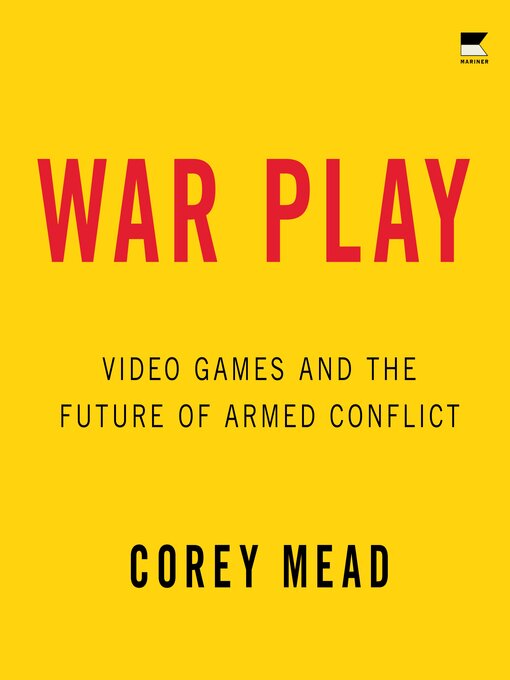A behind-the-scenes look at how the military uses video game technology to train soldiers, treat veterans, and entice new recruits
How does the U.S. military train its soldiers for new forms of armed conflict, all within the constraints of diminished defense budgets? Increasingly, the answer is cutting-edge video game technology. Corey Mead shows us training sessions where soldiers undertake multiplayer "missions" that test combat skills, develop unit cohesion, and teach cultural awareness. He immerses himself in 3-D battle simulations so convincing that they leave his heart racing. And he shows how the military, which has shaped American education more than any other force over the last century, fuels the adoption of games as learning tools—and recruitment come-ons. Mead also details how the military uses games to prepare soldiers for their return to the home front and to treat PTSD.
Military-funded researchers were closely involved with the computing advances that led to the invention of the Internet. Now, as Mead proves, we are poised at the brink of a similar explosion in game technology. War Play reveals that many of tomorrow's teaching tools, therapies, and entertainments can be found in today's military.
- Available now
- Sweeten Up Your Holidays!
- New eBook additions
- Graphic Novels, Manga, and Superheroes!
- New kids additions
- New teen additions
- Most popular
- Try something different
- Resources for Libraries
- New Russian Language Books
- New Spanish Language Books
- "Se me enchina la piel" - Libros espantosos para adultos
- See all ebooks collections
- New audiobook additions
- Full-cast audio
- Great Audiobook Narrators!
- New teen additions
- New kids additions
- Available now
- Most popular
- Try something different
- See all audiobooks collections
- Diverse Families
- Family Road Trip
- Reese Witherspoon's Book Club Reads
- The 100 Best Teen Books of All Time!
- Spies, Lies & Political Intrigue
- Great Adult Books for Teens!
- Transgender/nonbinary reads
- What's Next? Getting to a New Normal
- Twisty Psychological Thrillers
- Need a Laugh?
- Learn English
- African-American Romance
- Burnout: Signs, Symptoms and Strategies
- See all featured collections collections

